According to a special correspondent of the Vietnam News Agency, during the G7 Summit, on the afternoon of May 20, Prime Minister Pham Minh Chinh attended and spoke at the Session “Joint efforts for a sustainable planet”, focusing on important topics including climate change adaptation, sustainable energy transition and environmental protection.
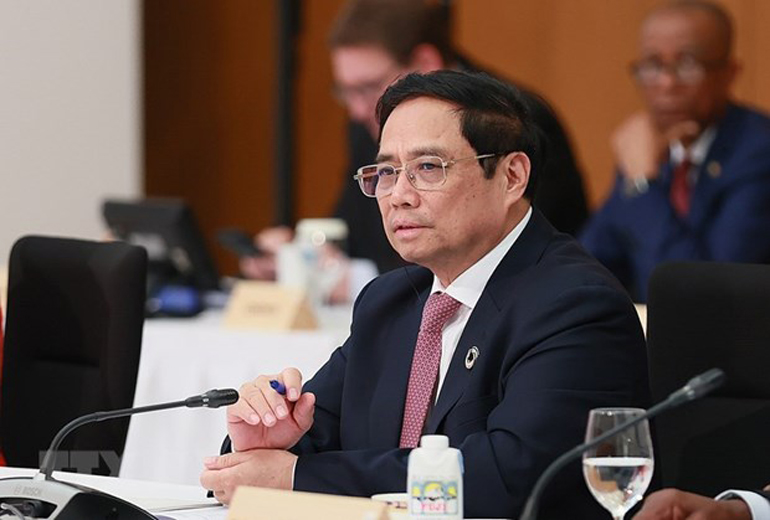 |
| Prime Minister Pham Minh Chinh at a discussion session. Photo: VNA |
As one of the first leaders to speak at the meeting, Prime Minister Pham Minh Chinh emphasized the message that sustainable development, climate change response, emission reduction and energy transition can only be successful through a global, all-people approach, promoting multilateralism, self-reliance and self-reliance of each country and extensive international cooperation.
Prime Minister Pham Minh Chinh expressed his views on ensuring fairness and rationality, taking into account different conditions and levels among countries; ensuring strategic balance between clean energy transition and global energy security; building fair, diverse, highly practical energy transition roadmaps that are consistent with market rules.
The Head of the Vietnamese Government emphasized that human resources, science, technology and innovation are the central driving force for sustainable development of every country, the solution to the problem of both rapid and sustainable growth; proposed that G7 countries and international organizations increase support for developing countries in technology transfer, capacity building in institutions, infrastructure, human resources, management methods, and building a clean energy development ecosystem.
Prime Minister Pham Minh Chinh said that mobilizing and effectively using resources is a key factor for sustainable development.
G7 countries need to prioritize timely and effective implementation of financial commitments for development, meeting the urgent need to cancel, extend and restructure debt for poor countries.
The Prime Minister proposed a creative approach in mobilizing diverse financial resources, focusing on public-private partnership (PPP), mixed finance associated with the participation of the private sector and foreign investment.
Returning to Vietnam, Prime Minister Pham Minh Chinh affirmed his determination to achieve the goal of bringing net emissions to zero by 2050, even though Vietnam is still a developing and transitional country that has experienced many wars.
Assessing this as a huge challenge, but it is the path Vietnam has chosen based on the fact that promoting internal strength is decisive, fundamental, long-term, and external strength is important and breakthrough.
Prime Minister Pham Minh Chinh emphasized his support for Japan's "Asian Zero Emission Community" (AZEC) initiative and proposed that G7 countries and partners continue to accompany Vietnam in implementing the Just Energy Transition Partnership (JETP) in a practical and effective manner; contributing to helping Vietnam promote its potential and advantages, become a regional renewable energy center, and deeply participate in supporting industrial production chains for clean energy and circular economy.
Affirming that wind and solar are energy sources that no one can take away, Prime Minister Pham Minh Chinh shared that Vietnam has just announced the National Power Development Plan for the 2021-2030 period, with a vision to 2050, to promote the development of renewable energy.
Prime Minister Pham Minh Chinh hopes to continue receiving effective support and cooperation in managing and sustainably using water resources, improving the capacity to respond to climate change and rising sea levels, especially in the Mekong Delta region of Vietnam, as well as supporting the sustainable development of the Mekong Sub-region.
At the meeting, many leaders shared Prime Minister Pham Minh Chinh's assessment of the importance of solidarity and international cooperation in responding to global challenges, emphasizing the need to quickly make up for the financial shortfall in climate change adaptation.
The leaders also supported Vietnam's view on balancing the implementation of the net zero emissions target with ensuring energy security.
Many countries emphasize that the energy transition can be implemented with many different roadmaps, suitable to the circumstances and conditions of each country.
G7 countries affirmed their determination to implement new initiatives such as JETP, Green Climate Fund, Global Infrastructure and Investment Partnership (PGII), AZEC...
Developing countries proposed promoting cooperation in technology transfer, preferential capital provision, technical assistance, and implementing the commitment of 100 billion USD for climate finance of developed countries.
Many opinions also proposed promoting the diversification of supply chains, ensuring the supply of essential minerals for clean energy development.
Also within the framework of the conference, Prime Minister Pham Minh Chinh attended the event on the PGII Initiative. This is an important initiative of the G7 group in promoting high-quality infrastructure investment in developing countries through public finance mobilization and public-private partnership.
According to VNA/Vietnam+
Source link




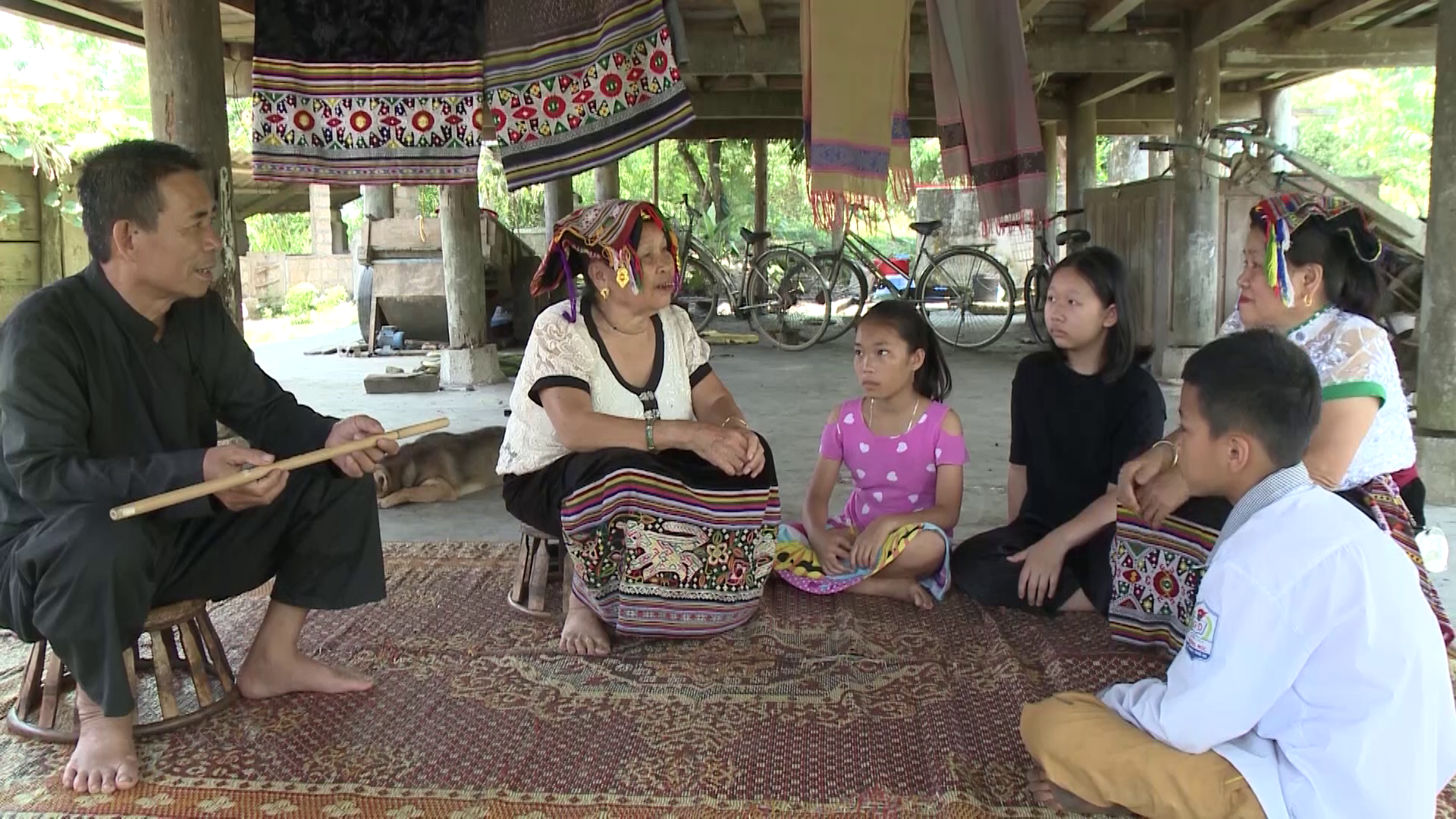



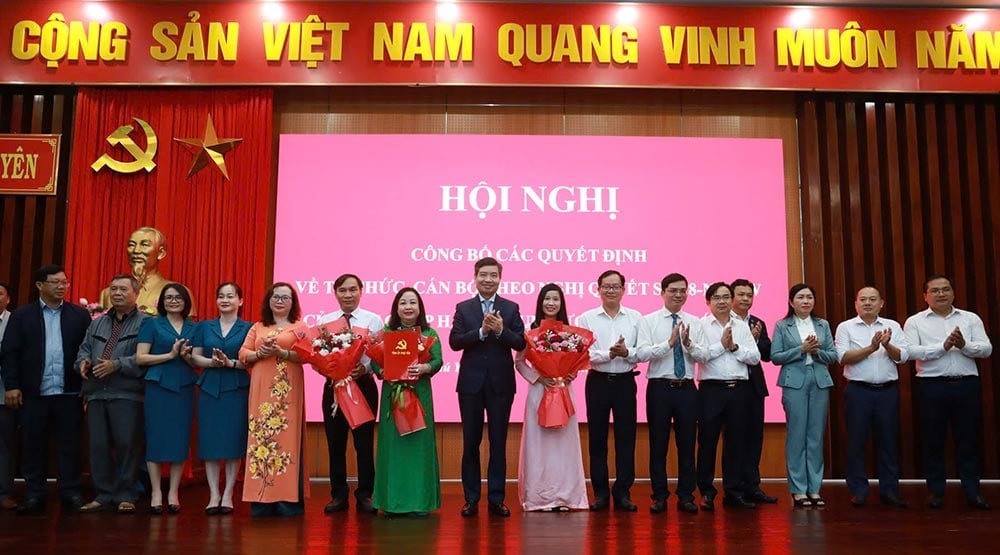

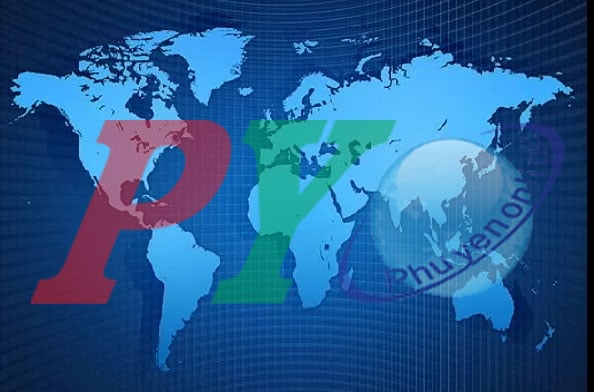
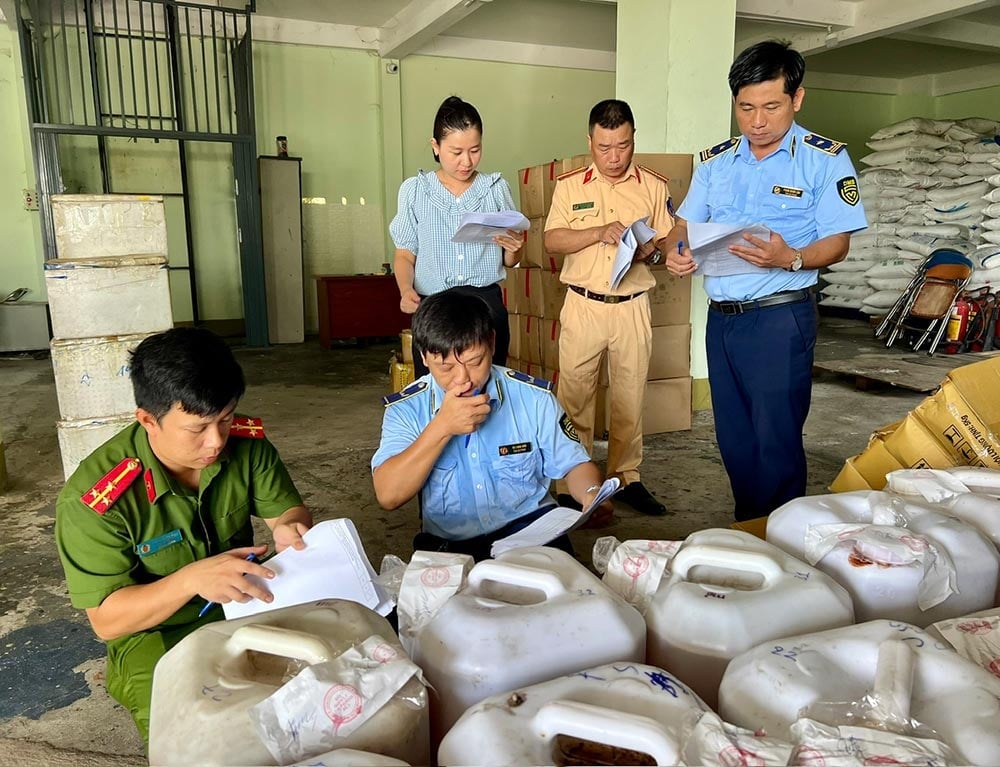
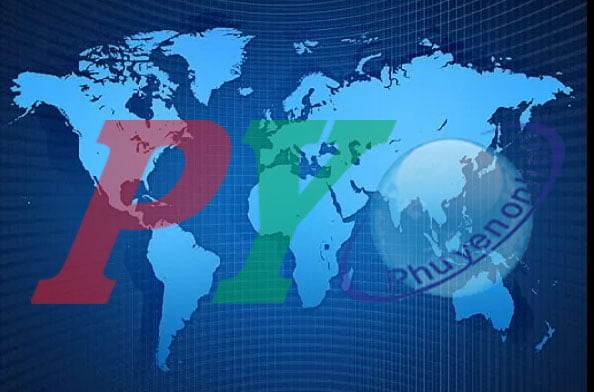
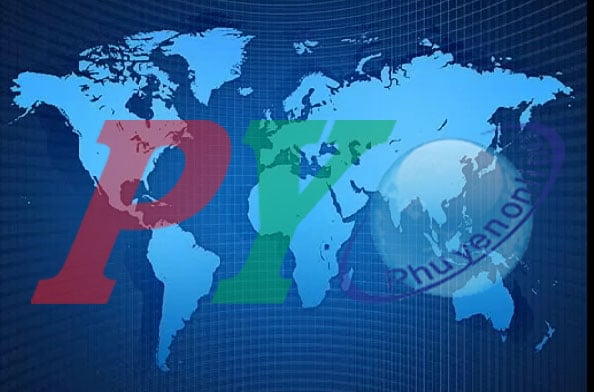
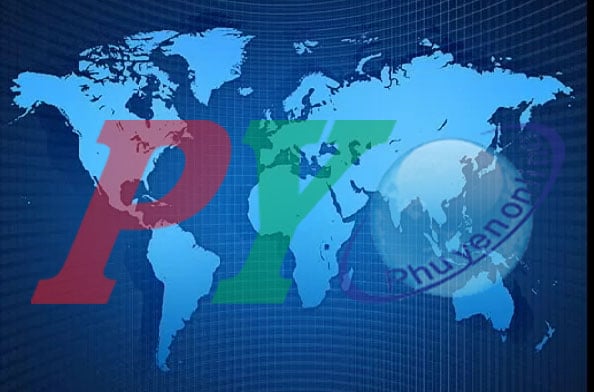
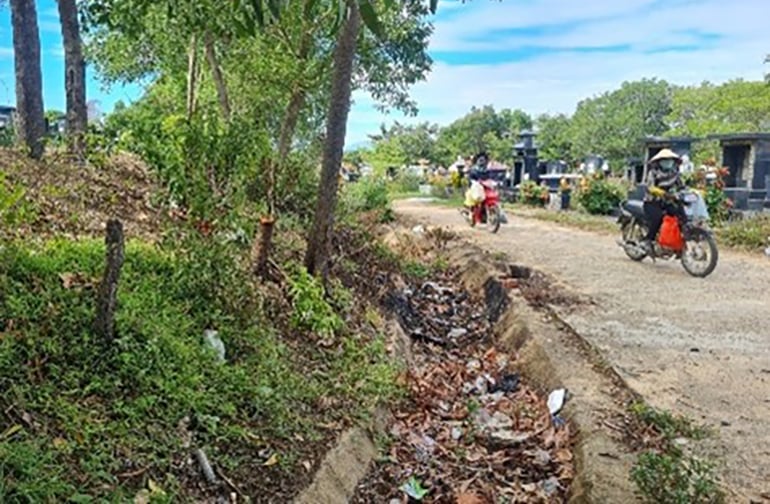
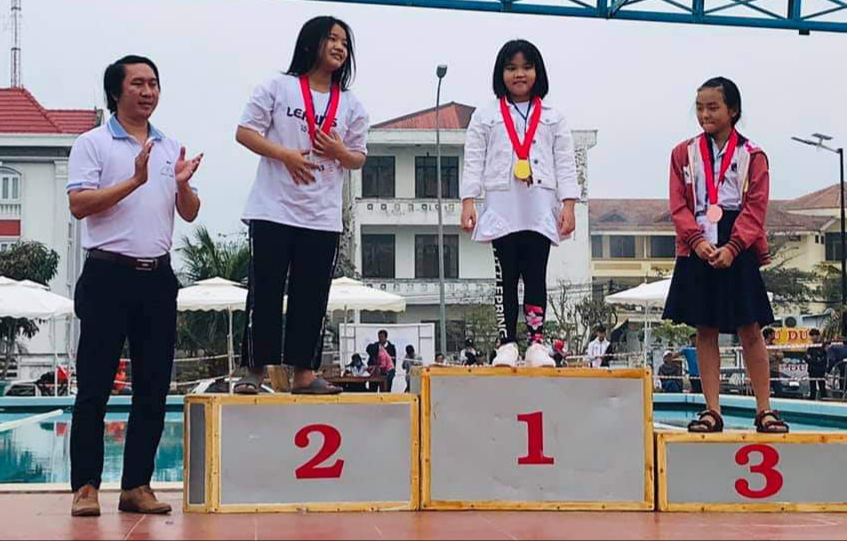

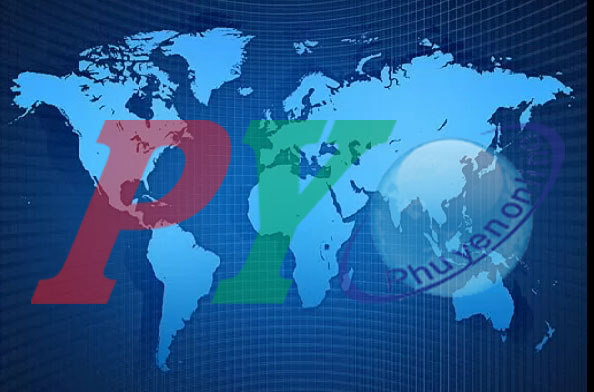
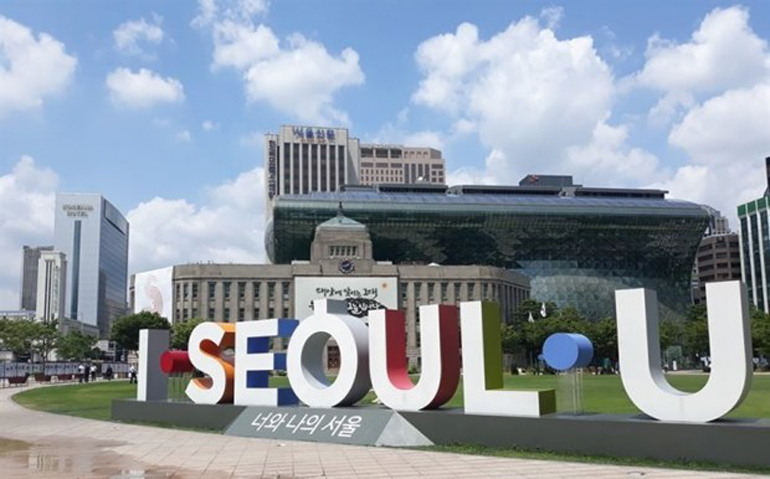
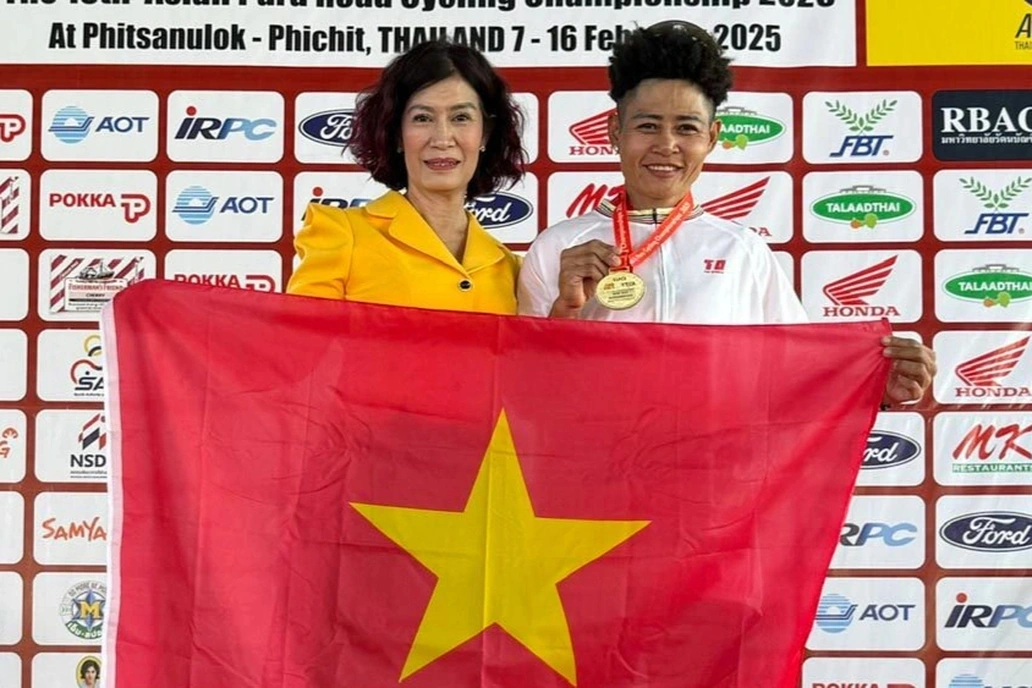

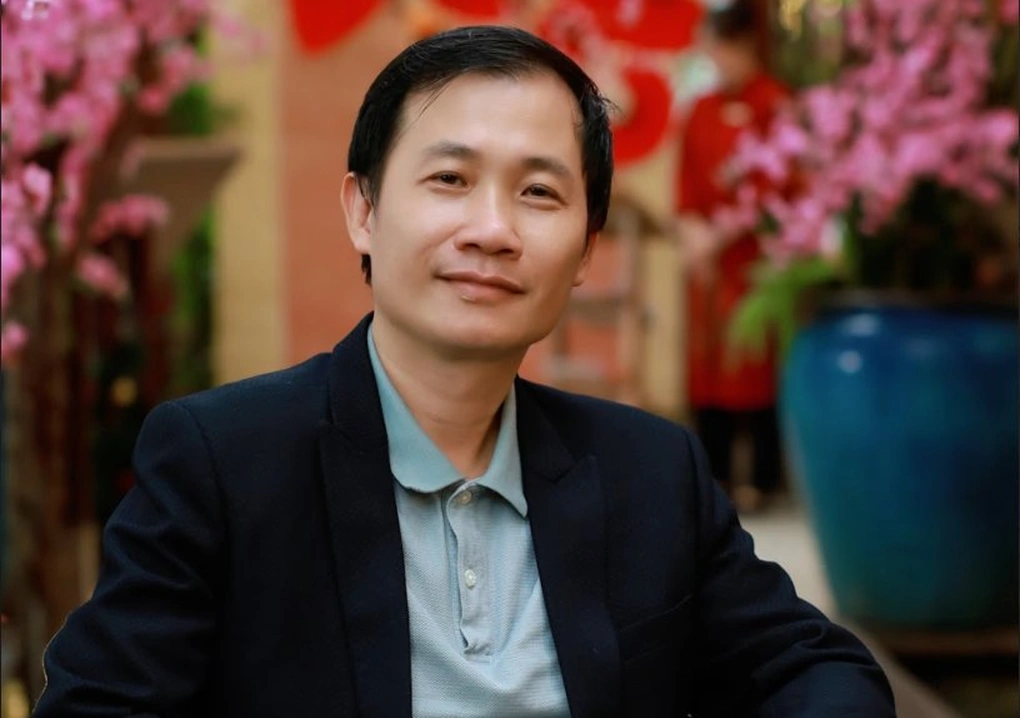



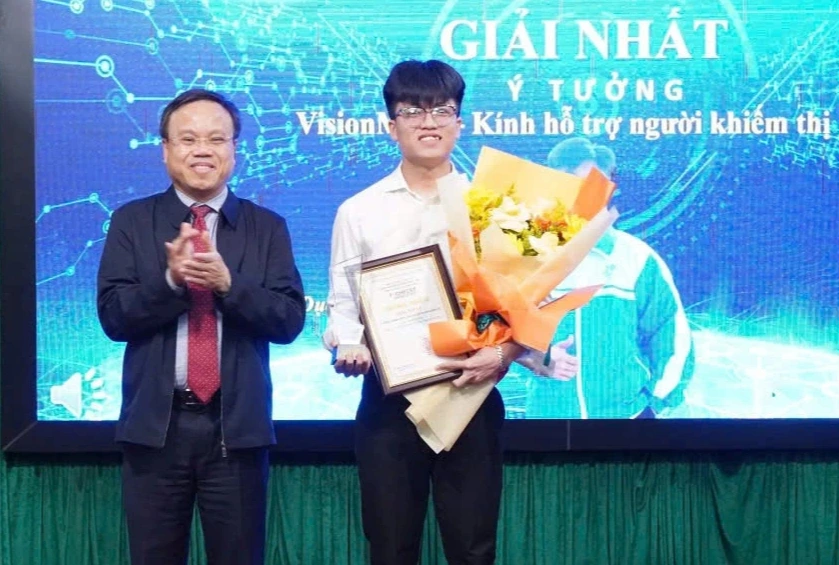


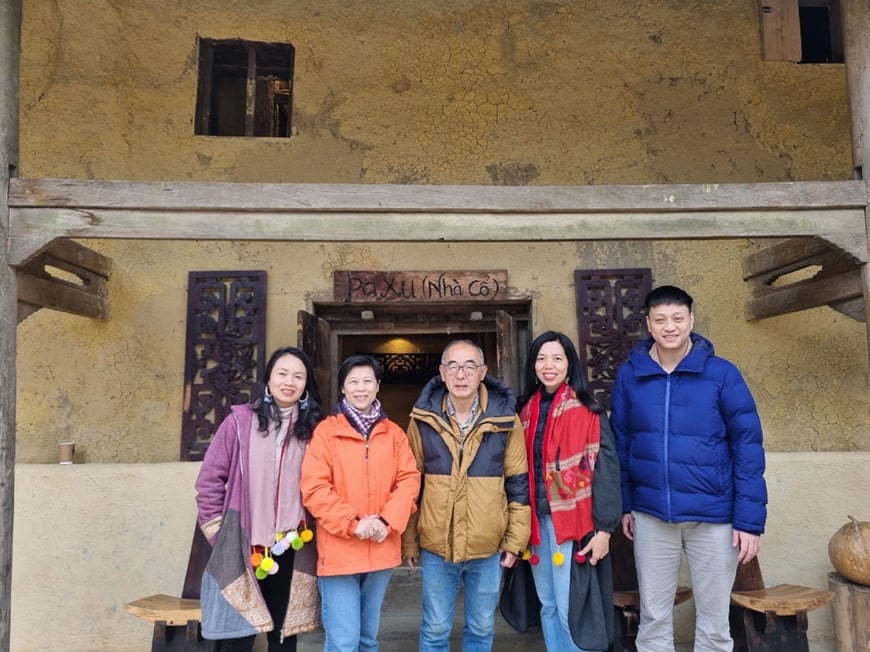



Comment (0)